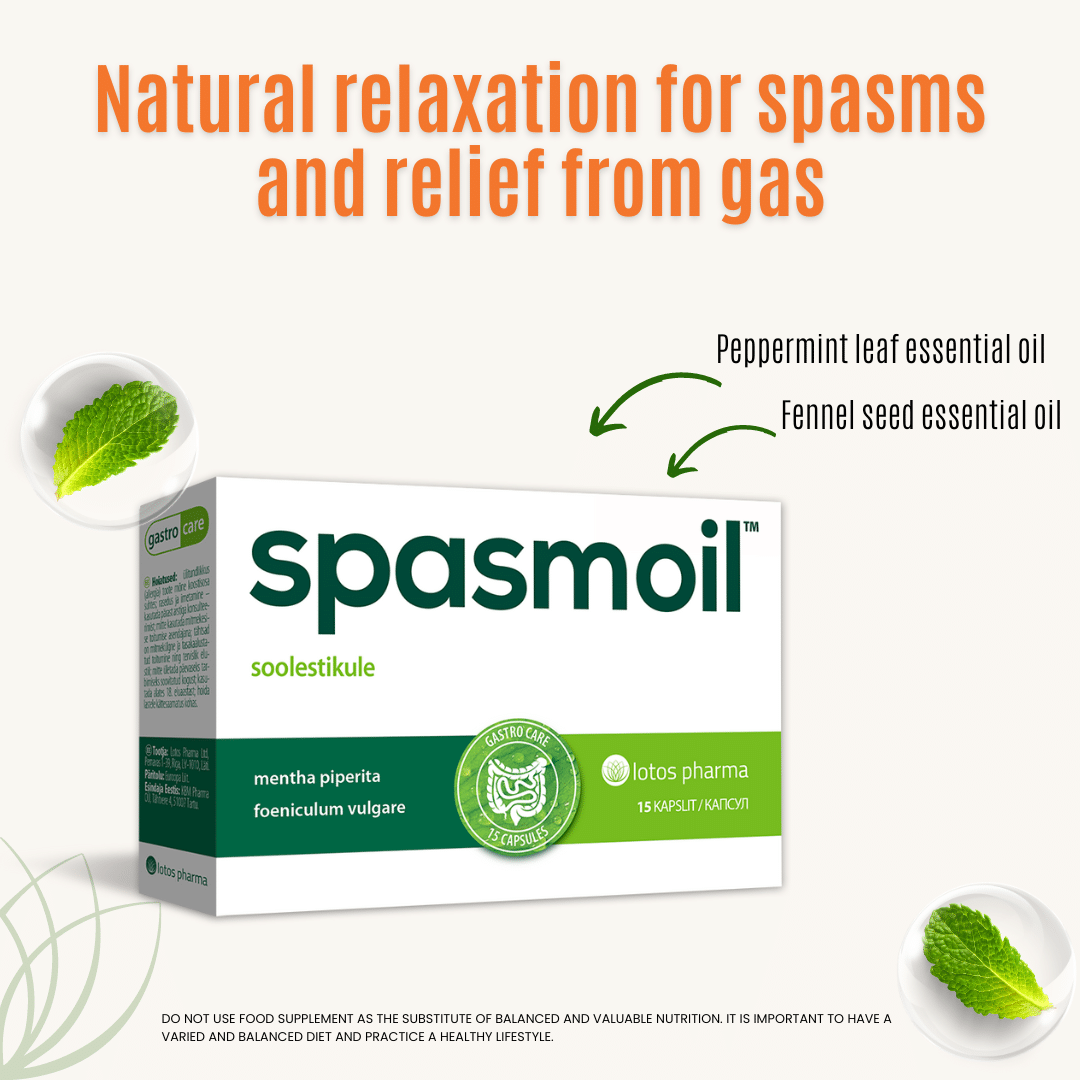What are abdominal cramps and why they occur?

Cramping pains in the abdominal area, also known as abdominal cramps, are a very common ailment that affects many people. These pains are caused by involuntary contractions of the smooth muscles of the intestines, which can be extremely uncomfortable and even painful. Although abdominal cramps can vary in intensity, it is important to understand their causes and possible relief methods.
Gastrointestinal irritation and excess gas
One of the main causes of abdominal cramps is gastrointestinal irritation. This irritation can occur due to the accumulation of excess gas in the intestines. When a large amount of gas accumulates in the stomach and intestines, an uncomfortable feeling of pressure arises, which can lead to spasms and pain. Gas is mainly produced as a result of food digestion and the activity of bacteria living in the intestines. Especially problematic is the excessive consumption of gas-producing foods such as beans, cabbage, and carbonated drinks.
Foods that irritate the mucous membranes
Another common cause of spasms is foods that irritate the mucous membranes. Some foods, such as spicy and fatty foods, can irritate the mucous membranes of the digestive tract, causing contractions of the smooth muscles and the occurrence of spasms. Also, some people may be sensitive to certain foods that can cause gastrointestinal irritation and painful spasms.
Stress and lifestyle
Stress is an important factor that can contribute to the occurrence of abdominal cramps. Prolonged stress can affect the functions of the digestive tract, causing contractions of the smooth muscles and spasms. In addition, lack of sleep and insufficient physical activity can increase the frequency of spasms. Physical activity helps to promote normal bowel function and can reduce the risk of spasms.
Improper diet and lack of fluids
Improper diet, especially a diet low in fiber, can be one of the causes of abdominal cramps. Fiber helps to improve bowel motility and overall digestion. A lack of fiber can lead to constipation, which in turn causes contractions of the smooth muscles of the intestines and spasms. It is also important to consume enough fluids, as a lack of fluids can worsen digestion and promote the occurrence of spasms.
Dysbiosis and intestinal microflora
Dysbiosis is a condition where undesirable bacteria begin to dominate in the intestines, suppressing the natural microflora of the intestines. Healthy intestinal microflora is important for normal digestion and the prevention of abdominal cramps. When undesirable bacteria begin to dominate, it can cause gastrointestinal irritation and the occurrence of spasms.
In summary
Abdominal cramps are caused by several different factors, including gastrointestinal irritation, stress, improper diet, and dysbiosis. Understanding the underlying causes can help better manage and prevent these discomforts. Healthy eating, adequate fluid intake, regular physical activity, and stress reduction can all help reduce the frequency of abdominal cramps and improve overall digestive health.
What will help with flatulence?
* A physically active lifestyle and exercise help to expel air from the intestines faster, thus reducing unpleasant sensations.
* If your stomach is bloated, you should take the dietary supplement “Spasmoil“, because the fennel essential oil and mint contained in it reduce flatulence. Fennel also helps improve digestion, while peppermint relieves spasms and flatulence.
* The stomach will bloat less if the mouth is closed while chewing, because then less air will enter the stomach with the food.
* You should try to swallow only well-chewed food, because then it will be easier for the digestive system to break it down and less fermentation and acidification processes will occur in the intestines, which contribute to gas formation.










